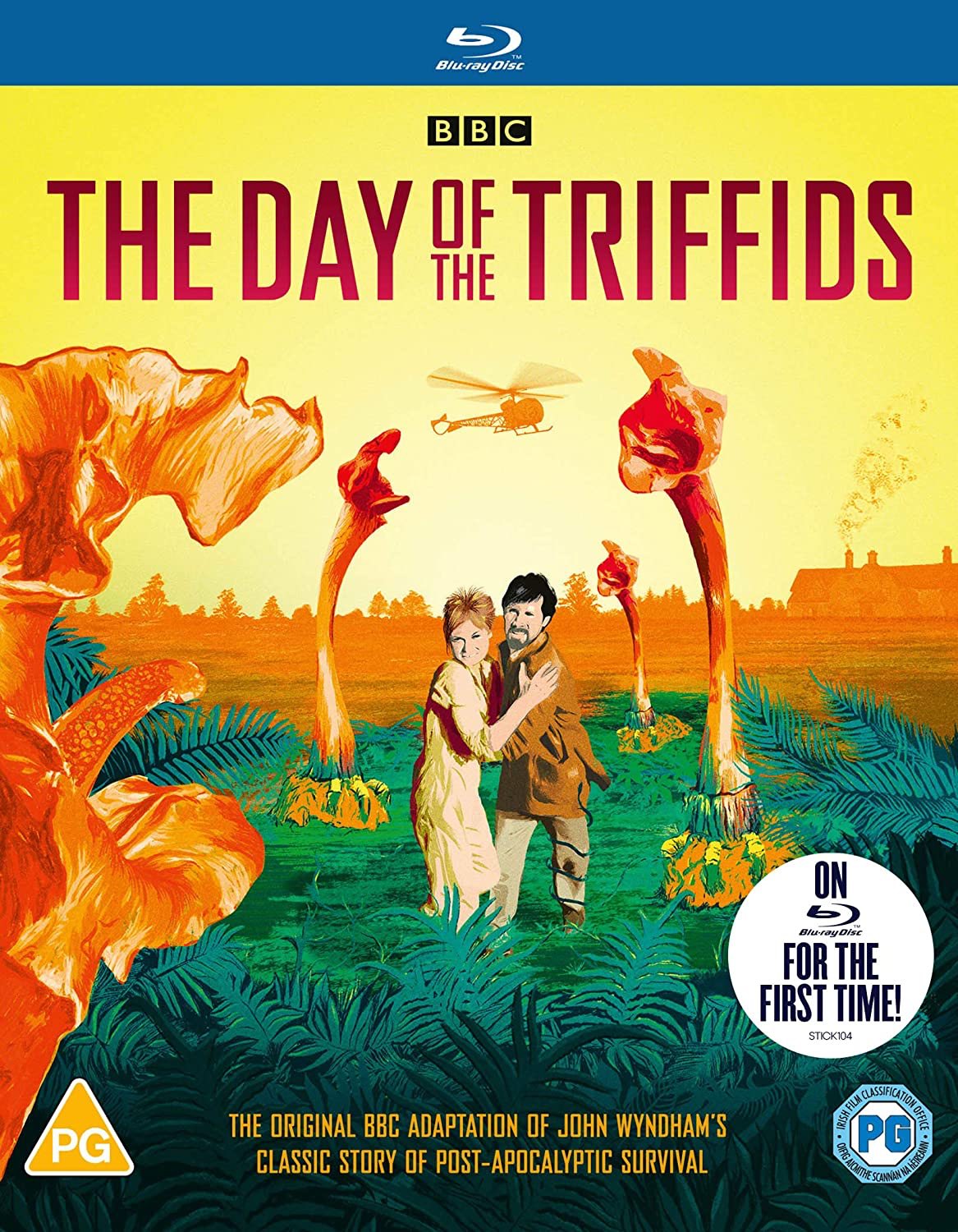The day of the Triffids is an altogether more satisfying apocalyptic sci-fi experience. Although lacking the massive expenditure on special effects of 2012, it manages to convey much more menace, combined with some awareness of social responsibility. Unlike 2012, The day of the Triffids engages and questions.
For those of us who have read John Wyndham’s original book of the same title published in 1951 or indeed have seen the first film version (1962), the gripping power of the storyline has always been important. In his novel, Wyndham suggests that Soviet bio-engineering has brought the Triffids into existence, but that they have then been accidentally released into the wild, where they have rapidly multiplied.
In the 2009 film version, Zaire is the point of origin for the Triffids, which are somehow able to spread beyond Africa in a matter of a few years. How they came to originate in Zaire is not explained, though. Nonetheless, this version sticks reasonably closely to the spirit of Wyndham’s novel, while updating the plot for the early 21st century.
Not completely eschewing the ersatz science so redolent in 2012, Nick Copus presents a corporate world farming Triffids for a fuel oil substitute that has solved the current climate change emergency. The main company involved in this exploitation, Triffidoil, has tens of thousands of farms, each with thousands of giant Triffids. Yet what is unexplained is how burning hydrocarbons produced by plants can possibly be any better than burning hydrocarbons from fossil fuel oil and gas. After all, hydrocarbons produce CO2 in similar proportions when burnt.
Plant biologist and Triffid specialist Bill Masen (Dougray Scott) gets stung by a Triffid, but after prompt treatment survives, though sporting a scar on his temple from the attack. Luckily for him, his treatment involves having his eyes bandaged for 24 hours - just at the time when brilliant meteor storms blind the overwhelming majority of the world’s population.
Broadcaster Jo Playton (Joely Richardson) also avoids blindness, thanks to a work assignment. Bill and Jo join forces. Surviving a plane crash, megalomaniac Torrence (Eddie Izzard) sees his opportunity to rule the UK - or at least part of London - and recruits a brutal force of armed men to achieve it. Torrence sweet-talks Jo into broadcasting radio appeals for people to come to London, but when she discovers he lied about Bill dying she flees to find him.
Bill, although injured, has survived Torrence’s plans for his execution on Hampstead Heath, escaping with Coker (Jason Priestley), who had challenged Torrence’s brutality. Coker manages to get Bill to a convent. But mother superior Durrant (Vanessa Redgrave) has only kept the surrounding Triffids at bay by periodically sending one of her flock beyond the convent walls to be sacrificed to them. When Bill exposes her, she leaves; her autocracy overthrown, Durrant is unable to accept the democratic regime that replaces hers.
Bill joins his estranged father, Dennis (Brian Cox), together with two orphaned sisters, Susan (Jenn Murray) and Imogen (Julia Joyce). Dennis has already brought Jo to his isolated manor house-cum-laboratory, where he is close to breeding infertile Triffids, thus wiping them out worldwide. But Dennis dies of Triffid stings, Bill destroys the attacking lab Triffid, and there is therefore now no way of breeding Triffids. The two adults and two girls prepare to leave for the Isle of Wight, where Coker has established a Triffid-free community. Unfortunately, Torrence discovers where Bill and Jo are and, as London is now overrun with Triffids eager for human meat, brings a band of desperadoes to force him to devise means to combat them.
Political lessons are much more apparent in The day of the Triffids, to its credit. Here we see how humans come together in groups, post-apocalypse, for good and ill. But come together in community they must. The lesson becomes: only by depending on a thoroughgoing democracy can humanity survive. How selfless the survivors’ leaders may prove to be, how altruistic in truth, is for the viewer to surmise.
http://www.cpgb.org.uk/worker/799/apocalypse.php





